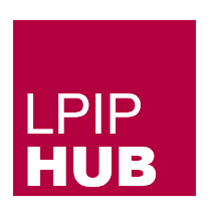ACCESS
Amid the pursuit of the UK’s net zero ambitions by 2050, the program “ACCESS” emerges as a transformative force. With an investment of £6.25 million by ESRC, ACCESS embodies the convergence of world-class social science expertise and interdisciplinary environmental research. This dynamic alliance strategically addresses behavioural shifts at institutional, community, and individual levels, unlocking solutions crucial for net zero and broader sustainability imperatives.
Areas of work
- Elevate social scientists’ contributions to research, policymaking, and action
- Cultivate evidence-based concepts and solutions for UK policymakers and decision-makers.
- Lead innovative climate and environment social science programs.
Contact details
Centre for Climate Change and Social Transformations (CAST)
Funded by the ESRC, CAST is a global hub for understanding the systemic and society-wide transformations that are required to address climate change. CAST is a partnership between University of Bath, Cardiff University, the University of Manchester, the University of York, the University of East Anglia and Oxford-based charity Climate Outreach.
Research areas
- Visioning, which recognises that transformative change requires inspiring yet practicable vision of the future.
- Learning, specifically learning lessons from past and current social shifts.
- Trialling, which tests models of change at different scales, from government to individual.
- Engaging, synthesising insights and embedding change through continuing communication and engagement with stakeholders and the public.
Contact details
Centre for Climate Change Economics and Policy
The ESRC Centre for Climate Change Economics and Policy (CCCEP) brings together some of the world’s leading researchers on climate change economics and policy, from many different disciplines. It was established in 2008 and its third phase began on 1 October 2018. The Centre is also a member of the Place-based Climate Action Network (P-CAN), which was launched on 31 January 2019.
What do they do?
Phase 3 of CCCEP consists of seven projects. They complement and build on the five research themes under phase 2 and leverage associated projects carried out at the Grantham Research Institute and in the School of Earth and Environment at the University of Leeds:
- Climate information for adaption
- Competitiveness in the low-carbon economy
- Incentives for behaviour change
- Integrating climate and development policies for ‘climate compatible development’
- Low-carbon industrial strategies in challenging contexts
- Low-carbon, climate-resilient cities
Contact details
Email addresses: [email protected] and [email protected]
Climate-KIC
EIT Climate-KIC is a Knowledge and Innovation Community (KIC), working to bridge the gap between climate commitments and current reality.
What do they do?
Climate-KIC bring together partners in the worlds of business, academia, and the public and non-profit sectors to create networks of expertise, through which innovative products, services and systems can be developed, brought to market and scaled-up for impact. Through convening, EIT Climate-KIC brings together the most effective groups to create the innovation that can lead to systemic change.
Contact details
Email: [email protected]
Global Parliament of Mayors (GPM)
The Global Parliament of Mayors is a governance body of, by and for mayors from all continents with a vision of the world in which mayors, their cities and networks are equal partners in building global governance for an inclusive and sustainable world.
What do they do?
It builds on the experience, expertise, and leadership of mayors in tackling local challenges resulting from global problems. At the same time, it brings local knowledge to the table and thus participates actively in global strategy debates and underscores the need for practical, action-oriented solutions.
Contact details
Email address: [email protected]
ICLEI – Local Governments for Sustainability
ICLEI – Local Governments for Sustainability is a global network working with more than 2500 local and regional governments committed to sustainable urban development. Active in 125+ countries, they influence sustainability policy and drive local action for low-emission, nature-based, equitable, resilient and circular development.
What do they do?
ICLEI works at multiple scales, building connections across local, regional, national and global actors and policies. They create systems change, developing integrated solutions along five interconnected development pathways that transform urban areas:
- Low-emission development pathway
- Nature-based development pathway
- Equitable and people-centred development pathway
- Resilient development pathway
- Circular development pathway
Contact details
Email address: [email protected]
International Public Policy Observatory (IPPO)
The International Public Policy Observatory (IPPO) aims to mobilise and assess evidence from across the four nations of the United Kingdom, and beyond, to inform policymakers about the best ways to address social harms.
Their overall ambition is to contribute to better policymaking and thereby to the wellbeing of all UK citizens.
Areas of work
These include:
- Place and Spatial Inequality
- Socio-Economic Inequalities
- Net Zero
- COVID Recovery
Contact details
Emails – [email protected]
Natural Environment Research Council
The Natural Environment Research Council (NERC) is a driving force of investment in environmental science in the UK. They advance the frontier of environmental science by commissioning new research, infrastructure and training that delivers valuable scientific breakthroughs.
What do they do?
NERC invests public money in world-leading science, designed to help us sustain and benefit from our natural resources, predict and respond to natural hazards and understand environmental change.
Contact details
National Institute of Economic and Social Research (NIESR)
The National Institute of Economic and Social Research (NIESR) is dedicated to dissecting the profound economic and social issues influencing lives. Its mission involves crafting enhanced policy responses to these challenges. Through rigorous research and proactive collaboration, NIESR not only comprehends complex dynamics but actively influences decision-making. Bridging academia and action, NIESR translates insights into tangible policy improvements. As a beacon of intellect and change, NIESR embodies the transformative power of research-driven policy to create a more equitable and informed future.
Areas of work
NIESR delves into the interaction between economic and social forces, impacting people’s lives through eight primary research themes:
- Destitution, Exclusion, and Strategies for Well-Being
- Education and Skills
- Labour, Employment and Wages
- Monetary Theory & Policy
- Macro-Economic Dynamics and Policy
- Macro-Economic Modelling and Forecasting
- Climate Change
- Macro-Economics of Climate Change
- Political Economy
- Productivity, Trade, and Regional Economies
Contact details
Email – [email protected]
Telephone – +44 (0)20 7222 7665
Regional Impact from Science of the Environment (RISE)
RISE is a programme funded by UKRI that brings research organisations together with businesses, policy bodies and other organisations to deliver high-impact and focused research translation and innovation in environmental science.
What do they do?
The RISE initiative follows on from the Environmental Science Impact Programme, with a continued focus on developing regional impact from environmental science. RISE is dedicated to bringing research organisations together with businesses, policy bodies and other actors contributing to economic development specific to their location, to deliver significant regional impact from NERC environmental science.
Contact details
Email address: [email protected]
The Wales Centre for Public Policy (WCPP)
The WCPP collaborates with leading policy experts to provide ministers, the civil service and public services with high quality evidence and independent advice that helps them to improve policy decisions and implementation outcomes.
Areas of work
Areas of work include:
- Promoting Equality
- Loneliness and Connected Communities
- Children and Families
- Economy, Decarbonisation and Skills
- Health and Social Care
- Governance and Implementation
Contact
Email – [email protected]
Telephone – 02920 875345









